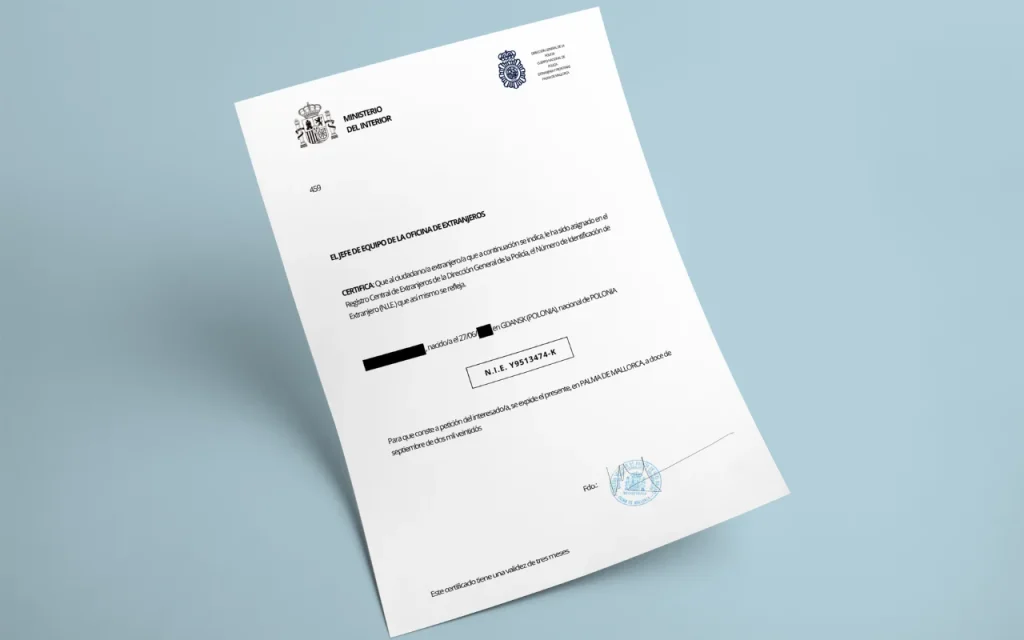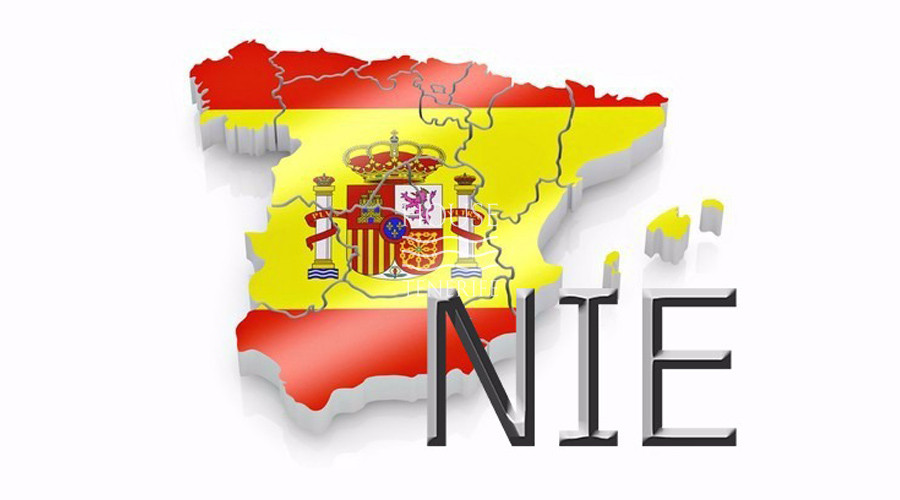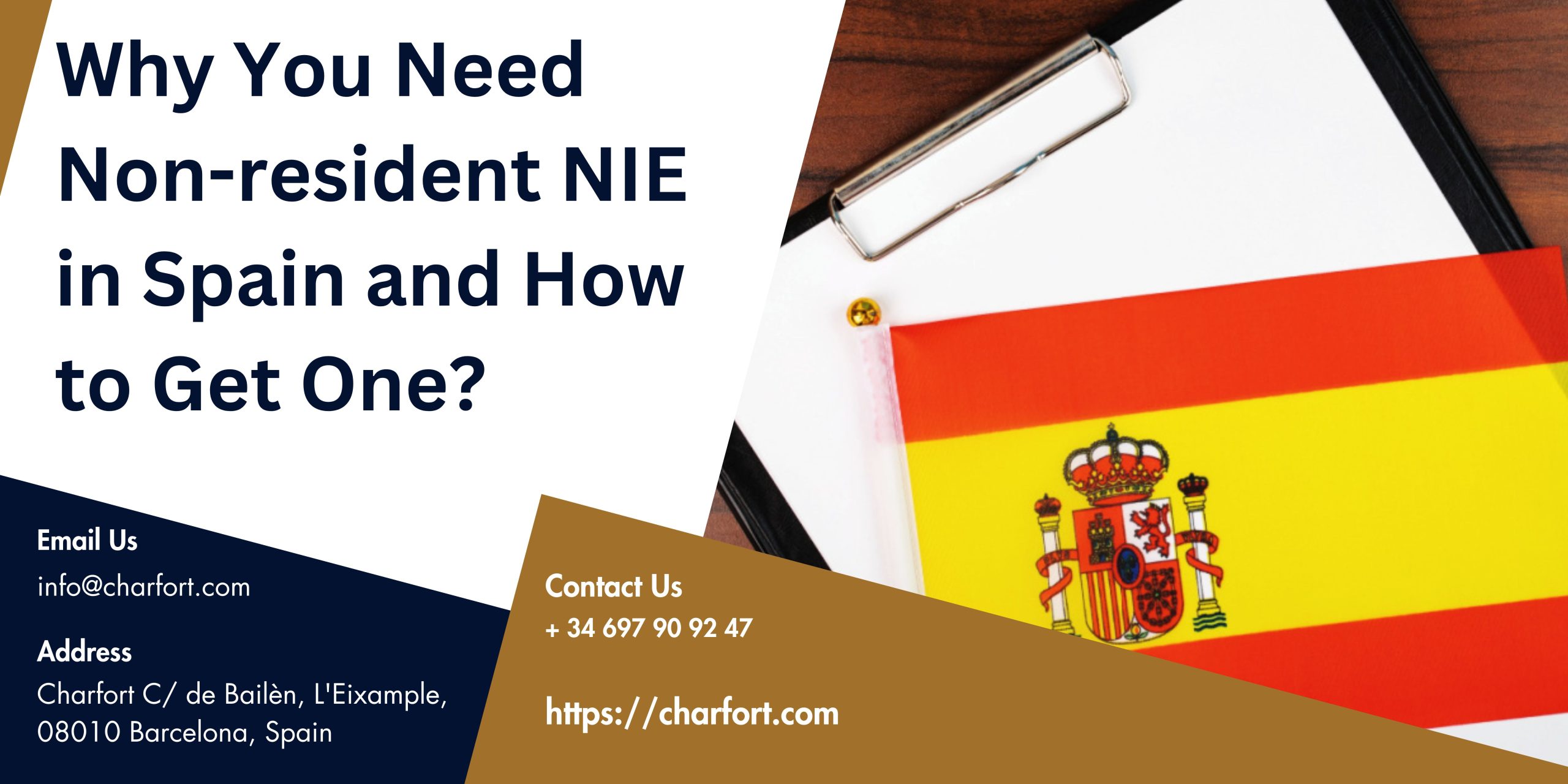
If you’re thinking about the Non-resident NIE in Spain, you may be asking yourself what exactly it is and why it’s so important. Let’s be honest: dealing with bureaucracy can be a bit overwhelming, especially in a foreign country, but this little number plays a huge role in making life easier for anyone who wants to engage with the Spanish legal system. Whether you want to purchase property, open a local bank account, or deal with taxes, the NIE isn’t just a requirement – it’s a must-have. Without it, you’re essentially stuck. But don’t worry, getting your hands on a Non-resident NIE in Spain is not as complicated as it might seem.
What is a Non-resident NIE in Spain?
The Non-resident NIE in Spain is a specific identification number for foreigners who aren’t living in Spain permanently but still need to interact with the Spanish system. It’s not just a random number; it’s your unique ID in all legal, financial, and tax-related matters. You might be thinking, «But I don’t live in Spain, so why should I care?» Well, here’s the thing: if you have any business, property, or financial interests in Spain, this number becomes essential.
What Is It Used For?
This identification number allows you to perform official activities legally in Spain. Things like purchasing real estate, paying taxes, or even opening a bank account would become possible without it. Almost any official transaction you want to make requires this number. Think of it as your key to the Spanish system.
Who Needs a Non-resident NIE?
This is one of the most frequent questions asked. If you’re not a Spanish resident but need to get involved with Spain’s legal or financial system in any way, shape, or form, you need an NIE. It’s not just for big-time investors or entrepreneurs – even if you want to set up a local bank account or handle a property purchase, you will need this number.
Let’s break it down with some common scenarios:
- Buying a Holiday Home: If you want to buy a piece of sunny Spain, you won’t be able to do so without an NIE. Whether it’s a charming coastal property or a chic apartment in Barcelona, that number is your ticket to signing on the dotted line.
- Investing in Spain: Maybe you’re interested in real estate or other investment opportunities in Spain. Without an NIE, you can’t legally handle those transactions.
- Dealing with Taxes: If you own property or have other financial interests in Spain, you’ll need your NIE to file taxes.
How to Obtain an NIE in Spain?
You’ve probably asked yourself, «How do I get an NIE number in Spain?» The process might sound intimidating, but it’s actually quite straightforward if you know what to expect. There are a couple of routes to take, and we’ll walk through each one step by step.

Application Process: Where to Start
There are two main ways to apply for a Non-resident NIE in Spain:
- Applying in Spain: You can apply at an immigration office in Spain. If you’re already visiting or planning a trip, this might be the most straightforward way. You can often get the NIE issued on the same day. However, this is usually only true in bigger cities, so if you apply in a smaller town, expect some delays.
- Applying Through a Spanish Consulate: You can apply at your local Spanish consulate if you’re not in Spain. This process can take a little longer, but it’s convenient if you’re not planning on traveling to Spain anytime soon. You’ll need to fill out the necessary paperwork (more on that below) and provide the consulate with proof of why you need the NIE.
Required Documents: What to Bring
Now, let’s talk about what you need to have in hand when you apply:
- EX-15 Form: This is the application form for the NIE. You can download it from the official Spanish government website.
- Passport: Your passport must be valid and up to date.
- Photos: In most cases, you’ll need to provide a couple of passport-sized photos.
- Reason for Application: You must provide a valid reason for applying for an NIE. This could be a purchase agreement for a property, proof of investment, or a job offer.
Where Can You Apply?
As mentioned, you can apply at an immigration office in Spain or through a Spanish consulate in your home country. Some people hire a lawyer to handle this process, especially when dealing with complex real estate transactions or significant investments.
How Long Does It Take to Get a Spanish NIE?
How long does it take to get a NIE in Spain? The timeline can vary, so let’s break it down.
Fast-Track vs. Regular Processing
If you apply in person at an immigration office in Spain, you could get your NIE on the same day – especially in bigger cities like Madrid or Barcelona. However, the processing time can stretch to a week or two in smaller towns.
For those applying through a consulate outside of Spain, the process takes longer, often around two to four weeks, depending on the consulate’s workload and location.
What to Do if There’s a Delay
If your NIE application takes longer than expected, don’t panic. Sometimes delays happen, especially if you’re applying through a consulate. In most cases, you’ll receive your NIE within a few weeks. If the delay is significant, you can always follow up with the consulate to check your application’s status.
Common Mistakes to Avoid During the Application
Even though applying for your Non-resident NIE in Spain is pretty straightforward, people sometimes make mistakes that cause delays or rejections. Let’s highlight some of the common pitfalls so you can avoid them.
Not Bringing All Required Documents
One of the most frequent mistakes people make is forgetting essential documents. Double-check that you have everything before your appointment, especially the completed EX-15 form and your passport.
Misunderstanding the Purpose of the NIE
Some people assume that the NIE is equivalent to a residency card. It’s not. The NIE is simply an identification number that allows you to interact with the Spanish legal and financial systems. It doesn’t grant you residency or permission to work in Spain.
Spanish NIE vs. Resident NIE: What’s the Difference?
You may have heard of both the Spanish NIE and the Resident NIE, and if you’re not familiar with Spanish bureaucracy, it’s easy to get confused. So, let’s clear that up.

Non-resident NIE
This NIE is for foreigners who do not live in Spain but must manage the country’s legal, financial, or business affairs.
Resident NIE
You’ll need a resident NIE if you plan to live in Spain for over three months or move there permanently. The difference is that the resident NIE is tied to your residency status and allows you to live, work, and stay in Spain long-term.
How to Use Your NIE in Everyday Life?
Once you have your NIE, you might be surprised by how often you’ll need to use it. Here’s a look at the most common scenarios where your NIE will come into play.
Buying Property
Whether buying a holiday home or investing in real estate, you’ll need your NIE to sign contracts and register the property under your name. Buying property in Spain can be complex, but having your NIE in place ensures everything runs smoothly.
Paying Taxes
You’ll need your NIE to file taxes if you have any financial interests in Spain, including property or investments. Your NIE is linked to your tax status, so it’s crucial to keep this number handy whenever dealing with the Spanish tax authorities.
Do You Need a Lawyer to Get a Non-resident NIE?
Finally, let’s settle a common question: Do you need a lawyer to get a Non-resident NIE in Spain?
Going It Alone
Yes, you can handle the NIE application process yourself. If you have all the necessary documents and follow the process carefully, you won’t run into any significant issues.
Hiring a Lawyer
However, hiring a lawyer can make the process smoother if you’re buying property or handling significant financial transactions. Lawyers in Spain are familiar with the system and can speed things up, ensuring you don’t run into any legal hiccups.
FAQs
Do I need a Non-resident NIE if I visit Spain as a tourist?
No, you don’t need an NIE if you’re visiting Spain for tourism and have no plans to engage in any financial or legal activities. However, you’ll need one if you’re looking to buy property or make any investments during your visit.
How long is the Non-resident NIE valid?
The Non-resident NIE is valid indefinitely. You don’t have to worry about expiring, but remember that it doesn’t give you residency rights. It only allows you to interact with Spain’s legal and financial systems as a non-resident.
Can I use the Non-resident NIE to work in Spain?
No, the Non-resident NIE doesn’t grant you the right to work in Spain. If you want to work, you’ll need a work visa or a residency permit that allows explicit employment.
How do I renew my non-resident NIE?
The good news is that you typically don’t need to renew the Non-resident NIE unless your legal situation changes. For example, if you become a resident or need to update personal details like your name, you may need to modify your NIE.
Is there a fee for applying for the NIE?
Yes, there is a small application fee, generally between €10 to €20, depending on where you apply and how quickly you want the process to go. The fee is payable at the time of your application.
Conclusion
In the end, getting a Non-resident NIE in Spain isn’t as daunting as it seems, but it is essential for anyone planning to do business, invest, or purchase property there. This small number holds significant power in the Spanish legal system, allowing you to navigate everything from real estate deals to tax filings easily. Whether you decide to go it alone or hire a lawyer, having this identification number is your gateway to a smooth experience in Spain’s legal and financial world.

